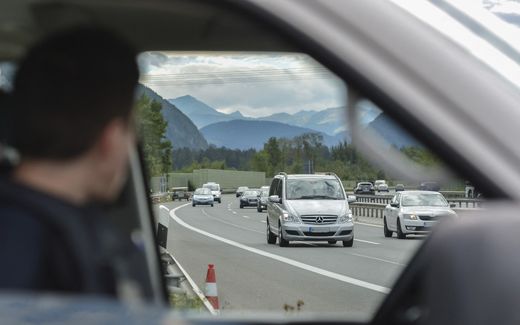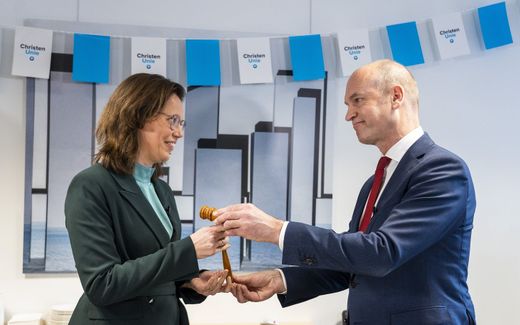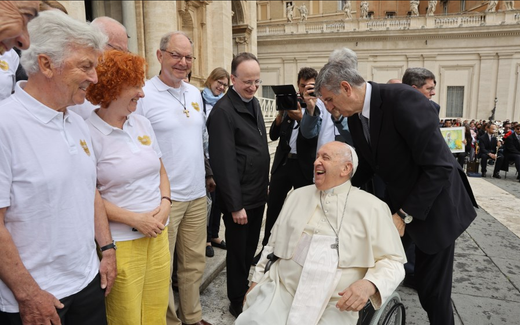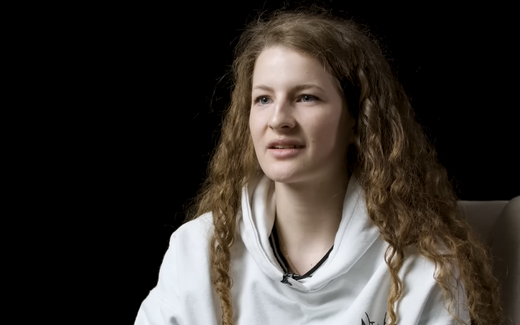Dutch Professor: Let holidays awaken the pilgrim in you
05-08-2023
Christian Life
Kees van den Brink, RD
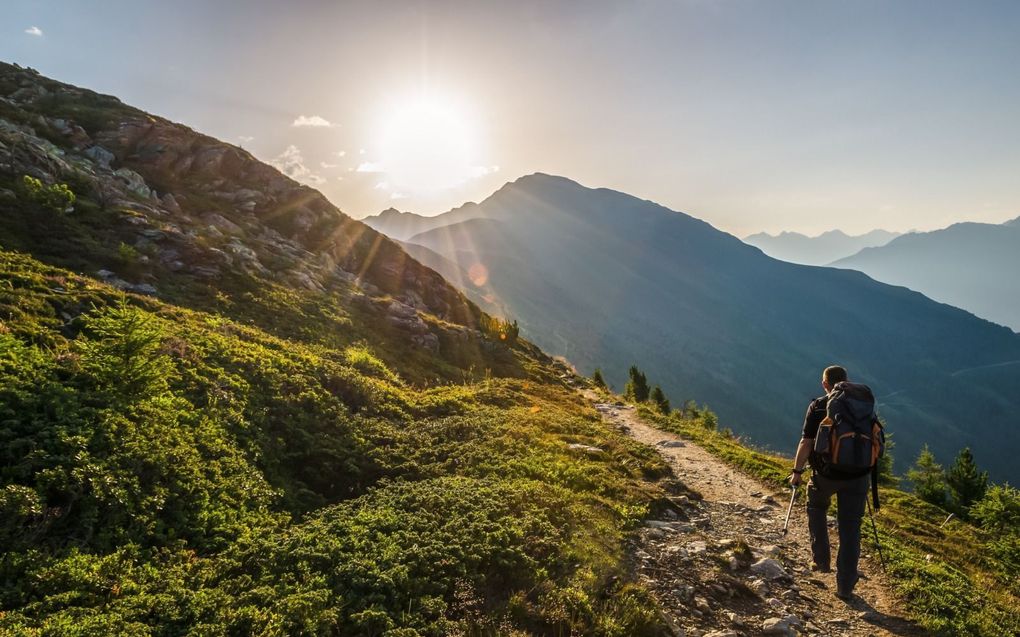
According to Professor Herman Paul, the photo accompanying this article-a tourist in the Alps-says something about the importance we attach to image. Photo Getty Images
Christian Life
Longer, further away, and more often. Holidays seem indispensable for many. In search of peace and silence. A sign of inner secularisation? While packing his own bags for his holiday, the Dutch Prof of History and Humanities, Herman Paul, reflects. "How can a holiday awaken the pilgrim in us?"
"Secularisation occurs when desires in the here and now prevail over desires for God," Paul (45) wrote in the Reformatorisch Dagblad a few years ago. The Leiden professor of history published two books on the secularisation of desire.
This secularisation is most evident in consumer behaviour, according to Paul. This includes booking a nice, faraway holiday. But does that make every holidaymaker secularised? Or can holidays also serve to counter inner secularisation? Paul has just a little time to address these questions: a day after the interview, he goes on holiday himself.
You argue that secularisation begins with the heart's desire. Is going on holiday an expression of that?
"No. That's way too short-sighted. When I look at both holidays and the secularisation of desire, I mainly see something positive. Holidays are a gift. It is a chance to take a break from ordinary life. To have time for conversation, read a good book, or maybe visit a church where things are a bit different from home. It is a perfect time to ask yourself what you are busy with, what you spend your time and money on, and which desires guide your life. So thank God for the privilege called a holiday.

But of course, I understand your question. You may wonder how much relaxation and self-reflection will come from a holiday trip in which all sorts of things have to be done. But please don't make the mistake of categorically rejecting an activity -holidaying- as a source of secularisation.
Anything that pulls our desires away from God can be a cause of secularisation. That includes work, family and church. It depends entirely on how you engage in those activities."
Do people go on holidays more often and further away?
"I do not have the figures ready at hand, but I would not be surprised if there is a correlation between the busyness people experience in ordinary life and the need they have for holidays. Many of us are very busy. Then I understand that three weeks of summer holidays are not enough. The more pressure people experience in life, the more the need arises for a valve - to let the pressure escape for a while."
What does it say about Christians' desire that they, too, go on holiday more often?
"On other people's desires, I cannot comment. We are often already barely aware of our own desires, let alone that we could ascertain the desires of others."
How does going on holiday relate to the Christian ideal of being a pilgrim?
"At first glance, one would say that the tourist and the pilgrim are two different human types. Or, more accurately: two gestalts of being human that we both recognise, perhaps also in our own lives, but which certainly do not overlap. The question then is: how could a holiday awaken the pilgrim in us?
In my experience, I can walk into a Romanesque church or a medieval monastery as a tourist and come out as a pilgrim. Such a place of silence, where generations of believers have gone before me, forces introspection - at least in my experience. What did people say, sing and remain silent here? What did they believe? What did they hope for? And me, what do I put next to that? Like those churchgoers or monastics here, am I not a passerby travelling to my destination? To what exactly?"
"Enjoyment has become the eleventh commandment," Dutch theologian Tabitha van Krimpen said recently.
"'Enjoy your holidays' sounds pretty innocuous. But when you think about it, it is a remarkable command. Enjoyment is something that happens to you, not something you can bring about yourself. The fact that Van Krimpen shows with concrete examples how stressful it is to constantly have to enjoy oneself seems beneficial. Life becomes so much more beautiful, deeper, richer when not everything has to be enjoyable."
Van Krimpen also points to the trend of taking holiday photos for social media. How do you interpret this trend?
"As a historian, what can I say about that? I remember Van Krimpen quoting Susan Sonntag, who, in her beautiful essay on photography, says something about the fear of impermanence that makes people reach for their cameras: I want to capture this quickly before it's gone. But although that is easier than ever these days, we need to hold on to what we have is of all times.

The growing importance of images may well be new. Compare today's newspaper with that of 40 years ago: photos have become much more prominent. It is a bit of speculation, but could those holiday photos perhaps show something of the importance we attach to images? That we find it easier to share pictures with our family or friends than write long e-mails? That you used to be fine publishing this interview without images, but now really need to look for a photo of tourists in the Alps?"
What should be the purpose of a holiday trip?
"Holidays are a catch-all term for many different activities; I find that fascinating. The couple taking a break from the hustle and bustle on a sailboat on a lake, senior citizens on a Rhine trip, the family flying to Asia to show the adopted children their native country, the two friends going hiking in the Ardennes because there is a lot to talk about. The word ‘holiday’ can hardly cover all of these meanings.
Therefore, we should leave the question of the purpose of a holiday trip as a question everyone can ask themselves: What do I expect from my three weeks off in the summer? And, to echo Tabitha van Krimpen for a moment: will I best achieve that goal by imitating the holiday trips of others?"
What do you advise a Christian seeking rest?
"Beware of the holidays! Because the more you expect those few weeks to make a difference, the more likely you are to find yourself when you get back home. This applies to rest in the sense of sleep, but even more so to the rest Augustine speaks of: "Restless is our heart until it finds rest in Thee."
No holiday can compensate for the restlessess of our hearts, though holidays can be a time when you can face the restlessness of your desires and reflect on what is on your mind."
How do you spend your own holidays?
"Following a simple recipe: going out with the family, not too far away, games and books along. Time to wander through towns, visit a few churches, and of course, also a playground for the kids.
The plan is to leave tomorrow morning. So if this is your last question, then, quite appropriately, my holiday can begin."
This article was translated by CNE.news and published by the Dutch daily Reformatorisch Dagblad on July 28, 2023
Related Articles

